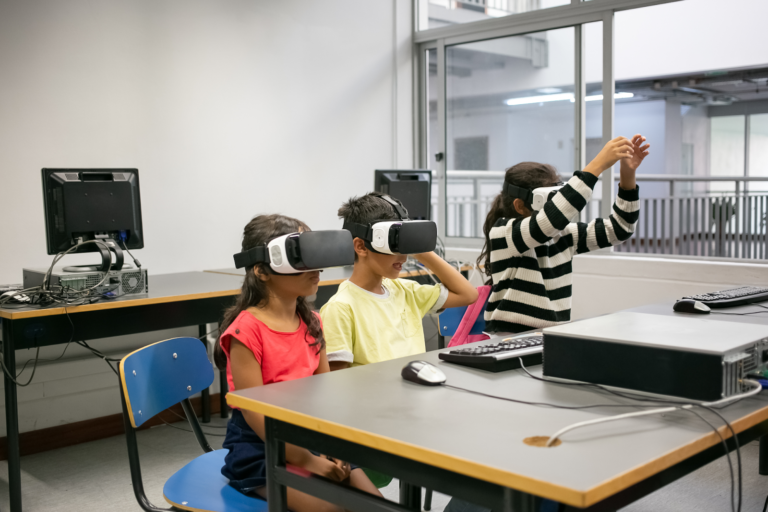Why Experiential Learning Matters for Student
In today’s rapidly evolving educational landscape, the traditional classroom model is challenged by a growing emphasis on experiential learning. Technology integration has opened up new horizons for experiential learning outside the conventional classroom setting.
One such innovation, Ed Tripper, is at the forefront of transforming school trips into dynamic, educational, and memorable experiences. This innovative platform serves as a bridge between students and cultural landmarks such as museums, galleries, zoos, aquariums, and parks. By digitizing their collections and activities, it offers customized tours to enhance the learning experience.
In this blog post, we’ll explore why experiential learning matters for students and how it can profoundly impact their educational journey and future success.
Understanding Experiential Learning
Experiential learning is an educational approach that emphasises learning through direct experience and reflection. Instead of passively receiving information, students actively engage in activities such as internships, fieldwork, simulations, projects, and community service.
These experiences allow students to apply theoretical knowledge in practical settings, fostering a deeper understanding of concepts and enhancing retention.
Why Experiential Learning Matters
Active Engagement
Experiential learning promotes active engagement, which is essential for effective learning. By participating in hands-on activities, students become actively involved in the learning process, sparking curiosity, motivation, and a sense of ownership over their education. This active engagement leads to deeper understanding and long-term retention of knowledge.
Real-World Application
One of the critical benefits of experiential learning is its emphasis on real-world application. By applying theoretical concepts in practical settings, students gain valuable insights into how their learning translates into real-life scenarios. This not only enhances their understanding but also prepares them for future careers by developing practical skills and competencies.
Critical Thinking and Problem-Solving Skills
Experiential learning encourages critical thinking and problem-solving skills by presenting students with authentic challenges and problems to solve. Whether designing a solution to a real-world problem or navigating complex situations in a simulated environment, students learn to think critically, analyse information, and generate innovative solutions. This skill set is invaluable in today’s rapidly changing world.
Collaboration and Communication
Experiential learning often involves collaboration with peers, mentors, and professionals from various fields. Through teamwork and communication, students learn to effectively collaborate, share ideas, and leverage each other’s strengths to achieve common goals. These interpersonal skills are essential for success in both academic and professional settings, where collaboration and communication are often integral to achieving objectives.
Personal Growth and Development
Beyond academic knowledge and skills, experiential learning fosters personal growth and development. Through hands-on experiences, students can step out of their comfort zones, overcome challenges, and develop resilience, adaptability, and self-confidence. These experiences not only shape their character but also prepare them to navigate the complexities of the world with resilience and optimism.
Examples of Experiential Learning
Internships and Co-op Programs
Internships and co-op programs allow students to gain real-world experience in their chosen field. Whether working in a corporate setting, a research lab, or a nonprofit organisation, students apply classroom learning to practical situations, gaining insights into industry practices and building valuable professional networks.
Service-Learning Projects
Service-learning projects integrate community service with academic learning, allowing students to address societal needs while gaining valuable skills and knowledge. Whether tutoring underprivileged children, volunteering at a homeless shelter, or conducting environmental research, students learn the importance of civic engagement, empathy, and social responsibility.
Simulations and Role-Playing
Simulations and role-playing activities simulate real-world scenarios in a controlled environment, allowing students to practice decision-making, problem-solving, and interpersonal skills. Whether participating in a mock business negotiation, a medical simulation, or a historical reenactment, students learn by doing, honing their abilities in a risk-free setting.
Project-Based Learning
Project-based learning engages students in collaborative, inquiry-based projects that address real-world problems or challenges. Whether designing a sustainable city, creating a marketing campaign, or building a robotic prototype, students apply interdisciplinary knowledge and skills to solve complex problems, fostering creativity, innovation, and entrepreneurship.
The Bottom Line
Experiential learning is more than just a buzzword—it’s a transformative educational approach that empowers students to become active, engaged learners prepared to succeed in an ever-changing world. By emphasising real-world application, critical thinking, collaboration, and personal growth, experiential learning equips students with the skills and knowledge they need to thrive academically, professionally, and personally.
As educators and stakeholders in the future of education, let us continue to embrace and promote experiential learning as a catalyst for student success and lifelong learning.
Stay in touch to get more news & updates on Discover Tribune!






